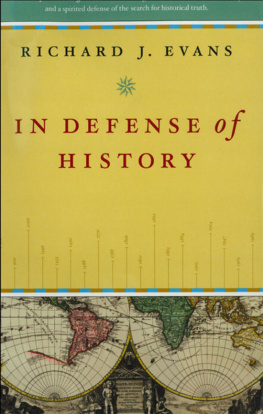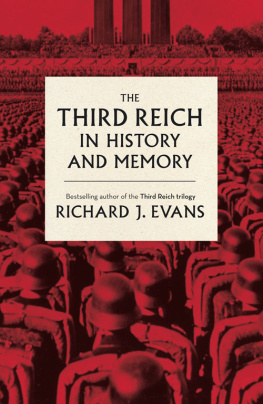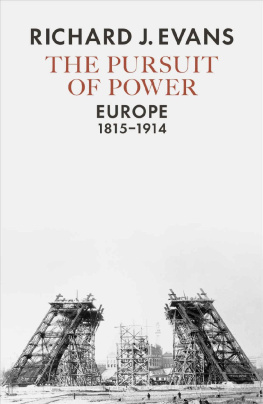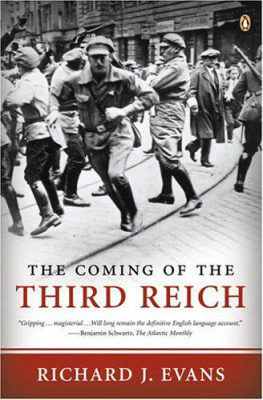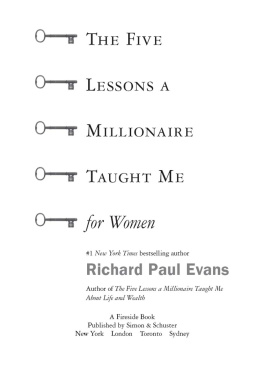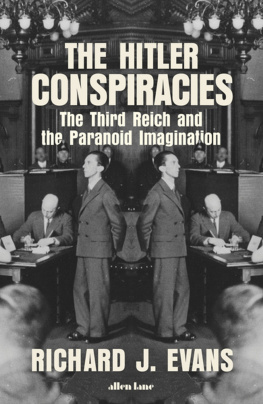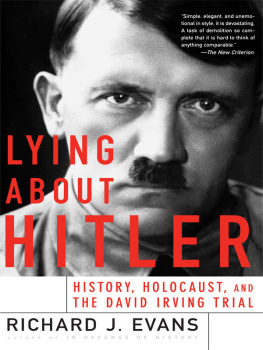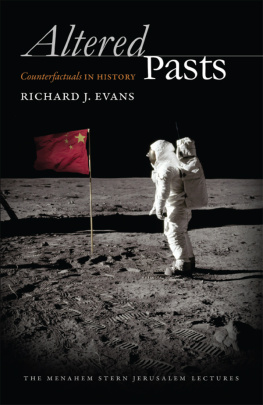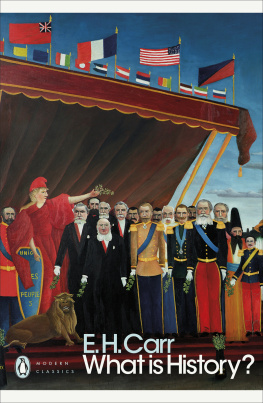IN
DEFENSE
OF
HISTORY
Richard J. Evans

W. W. NORTON & COMPANY
NEW YORK LONDON
For Christine, with love
CONTENTS
FOR this American edition I have included consideration of major work that has been published in this field since March 1997, added or amended a few historical examples to make them more relevant to an American readership, and altered a few passages where it seemed to me that the critics of the British edition had succeeded in finding obscurities or errors in the text. The essence of my arguments, however, remains unchanged. I am grateful to Steve Forman, of W. W. Norton & Company, for his help and advice. A comprehensive and periodically updated reply to my critics can be found at the following Web site: http://ihr.sas.ac.uk/ihr/reviews.mnu.html.
RICHARD J. EVANS
London, February 1998
IN
DEFENSE
OF
HISTORY
I
THIS book is not about history, but about how we study it, how we research and write about it, and how we read it. In the postmodern age, historians are being compelled to address these questions afresh. Of course, there have been many attempts to tackle them in the past. But they need to be confronted by every new generation of historians in turn. Currently the field is held by two books published thirty or more years ago by the British historians Edward Hallett Carr and Sir Geoffrey Elton. E. H. Carrs What Is History? has been widely used as an introduction to historical study by teachers and students since its first publication in 1961, and it is easy to see why. Carr was a practicing historian of vast experience, who had the ability to think clearly about difficult philosophical issues and to communicate his thought in a concise, witty, and thoroughly readable manner. What Is History? does not talk down to the student in the manner of conventional history primers or introductions to the study of history. It addresses itself to the reader as an equal. Carr engages in lively arguments with many other historians about the nature of history. He challenges and undermines the belief, brought to university study by too many students on leaving high school, that history is simply a matter of objective fact. He introduces them to the idea that history books, like the people who write them, are products of their own times, bringing particular ideas and ideologies to bear on the past.
Against Carrs relativistic approach to historical study, it is common practice to pit G. R. Eltons The Practice of History, published in 1967. Eltons book mounts a trenchant defense of the belief that history is a search for the objective truth about the past. It concludes optimistically that historians efforts in this enterprise more often than not meet with success. Elton, too, was a practicing historian of enormous experience, and in the course of dispensing a good deal of sensible advice on how history should be studied, written, and taught, his book also had a lot to say about particular historians and the ways in which they either lived up to or (more commonly) failed to live up to the ideals he proclaimed. While Carr championed a sociological approach to the past, Elton declared that any serious historical work should have a narrative of political events at its core. Those which did not, he dismissed as not really being proper history at all. And while Carr enjoined his readers to study the historian before they studied his facts, Elton told his readers to focus above all on the documentary record left by the past, the ultimate arbiter of historical accuracy and truth, and to leave historians and their motives to themselves.
While both Elton and Carr are still very much worth reading, there is, however, as critics have remarked, something rather strange about two books written more than thirty years ago still serving as basic introductions to a scholarly discipline.
Nothing has outdated the views not only of Elton, but even of Carr, more obviously than the arrival in the 1980s of postmodernist theory, which has called into question many, if not most, of the arguments put forward by both of them. If this is indeed the case, no wonder so many historians are worried about the future of their discipline.
II
YET far from this sense of crisis being universal among practicing historians, many commentators have discerned a widespread sense of complacency among historians in the mid-1980s. While American intellectual historian Allan Megill indicted the historical profession in 1989 for what he called its sclerotic self-satisfaction in the face of the postmodernist challenge, the medievalist Nancy F. Partner, writing in 1995, thought this same attitude was entirely commendable, adding:
The theoretical destabilizing of history achieved by language-based modes of criticism has had no practical effect on academic practice because academics have had nothing to gain and everything to lose by dismantling their special visible code of evidence-grounded reasoning and opening themselves to the inevitable charges of fraud, dishonesty and shoddiness.
British historian James Vernon similarly complained in 1994 about his colleagues general air of complacency about postmodernism. While elsewhere, he noted, historians are at least discussing the problems of writing social history in the 1990s, indeed the possibility of writing history at all in these post-modern times, the editorial of Social Historys fiftieth issue boldly declared that social history is emphatically not in crisis.
Of course, by the intellectual history of our own times, what Joyce really meant was his own ideas. The fact that they were being debated in the journal itself amounted to an implicit rebuttal of his complaint. Thanks not least to Joyces own interventions, the debate in Britain has become steadily more heated and has been gathering pace in an increasing number of scholarly journals. Already by 1993 two American specialists in British history could describe it as a now all-pervasive academic discourse.about history, truth, and objectivity unleashed by postmodernism has become too widespread for all but the most obscurantist to ignore. The critics complaints of complacency and self-satisfaction among the historical profession now seem to be little more than a rhetorical means of goading those whom they are criticizing into making a reply.
No less a traditionalist than Sir Geoffrey Elton himself charged into the lists not long before he died, to underline the growing sense among historians that the enterprise in which they were engaged was under severe and unprecedented attack. Elton roundly denounced postmodernist ideas on history as menacing, destructive, absurd, and meaningless. Total relativism, he declared, was the ultimate heresy, a virus of frivolous nihilism that was infecting a disturbing number of young historians, above all in the United States. In battling against people who would subject historical studies to the dictates of literary critics, he pronounced, we historians are, in a way, fighting for our lives. Certainly, we are fighting for the lives of innocent young people beset by devilish tempters who claim to offer higher forms of thought and deeper truths and insightsthe intellectual equivalent of crack.
Where so many historians are issuing such dire warnings couched in such colorful and alarmist language, something important is clearly going on. No one should doubt that the postmodernist challenge to historical study as conceived in different ways by Carr and Elton is a serious one. Some of the intellectual barbarians at the disciplinary gates are loitering there with distinctly hostile intent. Autumn, declared the Dutch postmodernist Frank Ankersmit triumphantly in 1990, has come to Western historiography.
Next page
